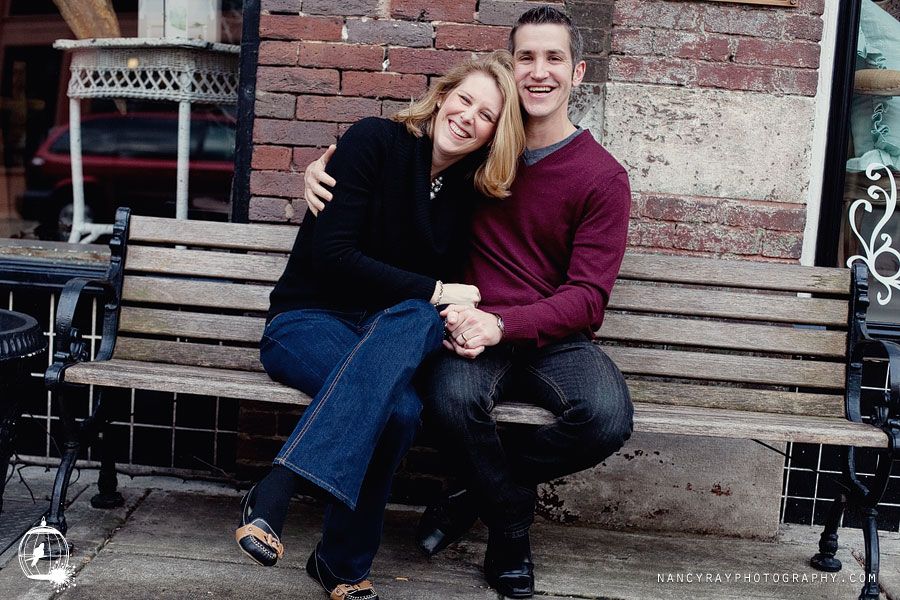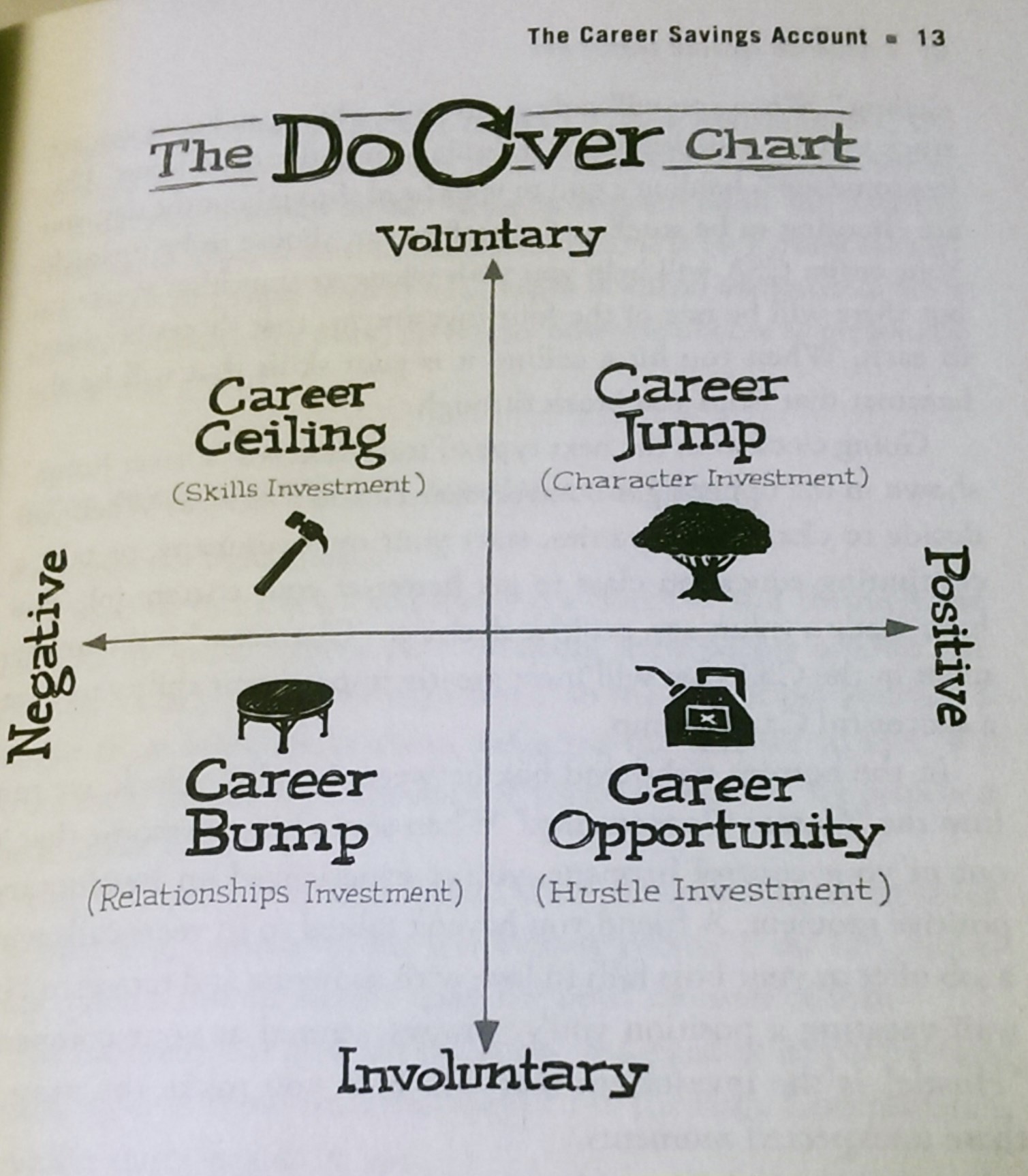 Photo Credit: Nancy Ray Photography
Photo Credit: Nancy Ray Photography
Who would have thought reading a business book would become a deeply personal experience? Encouraging. Empowering. Do Over has launched itself in my life. Jon (the writer) and Jenny (the wife) Acuff have become like good friends, in a virtual book-driven way. He’s clearly a funny, risk-taking, keen observer of people in the workplace. She, on the other hand, seems to both hold his feet to the ground and spur him on to what’s next. I’m pretty certain that Jon’s “do over” has Jenny written all over it. Thank you, Jenny.
When he talks about character (in the section of the book I’m covering today), he compares it to planting fruit trees. Character takes time to grow. Its fruit is worth the work and the wait.
As in previous blogs in this series, Jon will do most of the talking.
9 quotes follow. Also an exercise and a closing challenge. I hope you read the book. It is seriously, or not so much seriously, like grappling with a friend about a deep longing for career. Then receiving the best. advice. ever. Jon’s cool, and all…but his own fight for humility and honesty and his own fears and failures give him a platform. A platform to talk into my life and into the lives of those I love the most – my husband and my adult children. Thank you, Jon.
So here’s a bit of what he says about character and its impact on us in the workplace…especially in considering a Career Jump.
“Relationships get you the first gig. Skills get you the second. Character is the reason that people will still want to give you another chance if the first opportunity fails. Character is the mortar between all the other parts [relationships, skills, hustle] of the Career Savings Account. It’s what holds the other things together. “
“Character is also what you need the most when you make a positive, voluntary career transition, or what we’re calling a “Career Jump.” You need it the most then because it will be tested the most when you ‘just go for it’ or ‘chase a dream’.”
“When you make a [career] jump, you will be tempted to cut corners, to quit when the going gets tough and lose your patience when the results you expected don’t immediately happen. It is your character that will push you forward.”
Exercise: This time we don’t use note cards, but a notebook would be handy. Jon asks the question: What’s one character trait, related to your career, that you’d like to grow stronger? That’s where we start. You might still want a friend’s help in this. None of us are perfect, so it shouldn’t be too difficult. Just pick one to start.
As part of this exercise, consider those weeds in the workplace that could choke out that character trait you’re planting and nurturing. Jon lists four especially nasty (and all too common) ones:
- Narcissism – our focus is all on ourselves. Weighing every decision and process in your workplace as it relates to you.
- Dishonesty – Covering a mistake, embellishing our performance, gossiping, outright lying.
- Pessimism – That negative cup-half-empty (or even broken) take on how things are going at work. It’s not just a weed in your own orchard but it can seed clouds over your coworkers’ view of work. Pessimism can rob you of the ability to brainstorm and to dream (“two activities that require the optimism of creativity”).
- Apathy – you’ve gotten to the place you just don’t care anymore. What was once being passive now becomes deeply defiant. Partnered with pessimism, you convince yourself that you don’t have what it takes to do a Career Jump. A dry and dogged inertia can set in, crippling your ability to orchestrate a Career Jump.
Acuff focuses on 3 character traits in particular to grow in your Career Savings Account: Generosity, Empathy, & Being Present.
“Generosity is a game-changer. During a Career Jump give generously as a way to beat back the weed of greed. Greed will end up costing you a lot more than you think. Make your definition of generosity bigger by being generous with your skills and time, not just your money.”
“Empathy = Understanding someone else’s needs and acting on them. Generosity and empathy are closely intertwined; they go hand in hand. The stronger you get in one, the stronger you’ll get in the other.”
“The simplest thing you can do to be empathetic [is to] show up.”
“If you really want to reinvent your work and get ahead, there are three things you need to deal with – your phone, your computer and your meetings. Be present.”
[You hear this a lot these days – how distracting are our phones and other electronic devices, and how our shortened attention spans have impaired us related to deep thinking and creative, out-of-the-box dreaming and decision-making. The ones who deal with these will be the outliers – the leaders in the fields of our future. It’s laid out there – now for us to take our lives back.]
“You need character the most when you decide to chase a dream. “
“The moment you decide to make any sort of change in your career, you send other areas of your life into chaos. The bigger the change, the bigger the chaos. Wherever you jump, your character jumps with you.”
Challenge: “Is living with the chaos of a decision easy? Not really, but you do get used to it. I try to create [chaos] sometimes as a way to hide from something else I’m afraid of. I’ve discovered that’s a lightning-fast way to drain a Career Savings Account. When real chaos comes…don’t fight it. If anything, lean into it. ‘Easy’ and ‘adventure’ very rarely travel together.”
These Four Character Flaws Can Kill Your Career – Jon Acuff
Jon Acuff – Character Archives
The Awesome Career Audit – Jon Acuff
Jon Acuff Quotes by Goodreads (different from ones above)
Why I Hate Jon Acuff by Rob Shep
Do Over – Rescue Monday, Reinvent Your Work, and Never Get Stuck – by Jon Acuff – Notes (Part 1)

If you struggle with overthinking, this book is for you! We all have soundtracks playing in our head, and Jon Acuff does an excellent job of outlining how to replace your negative soundtracks with positive ones. No need to overhink it, this book is for anyone who wants to turn their overthinking to positive actions. Recommended by a friend from work. Acuff says we all have thoughts that play in our heads on repeat, and they often work against us. By asking if these thoughts are true, useful and kind, we can arm ourselves with the necessary information to remove the old, replace with something better, and repeat the new thoughts until they are automatic. Fantastic guide for turning overthinking from a problem to a superpower.
Thanks, I agree. https://www.amazon.com/Soundtracks-Surprising-Overthinking-Jon-Acuff/dp/1540900800